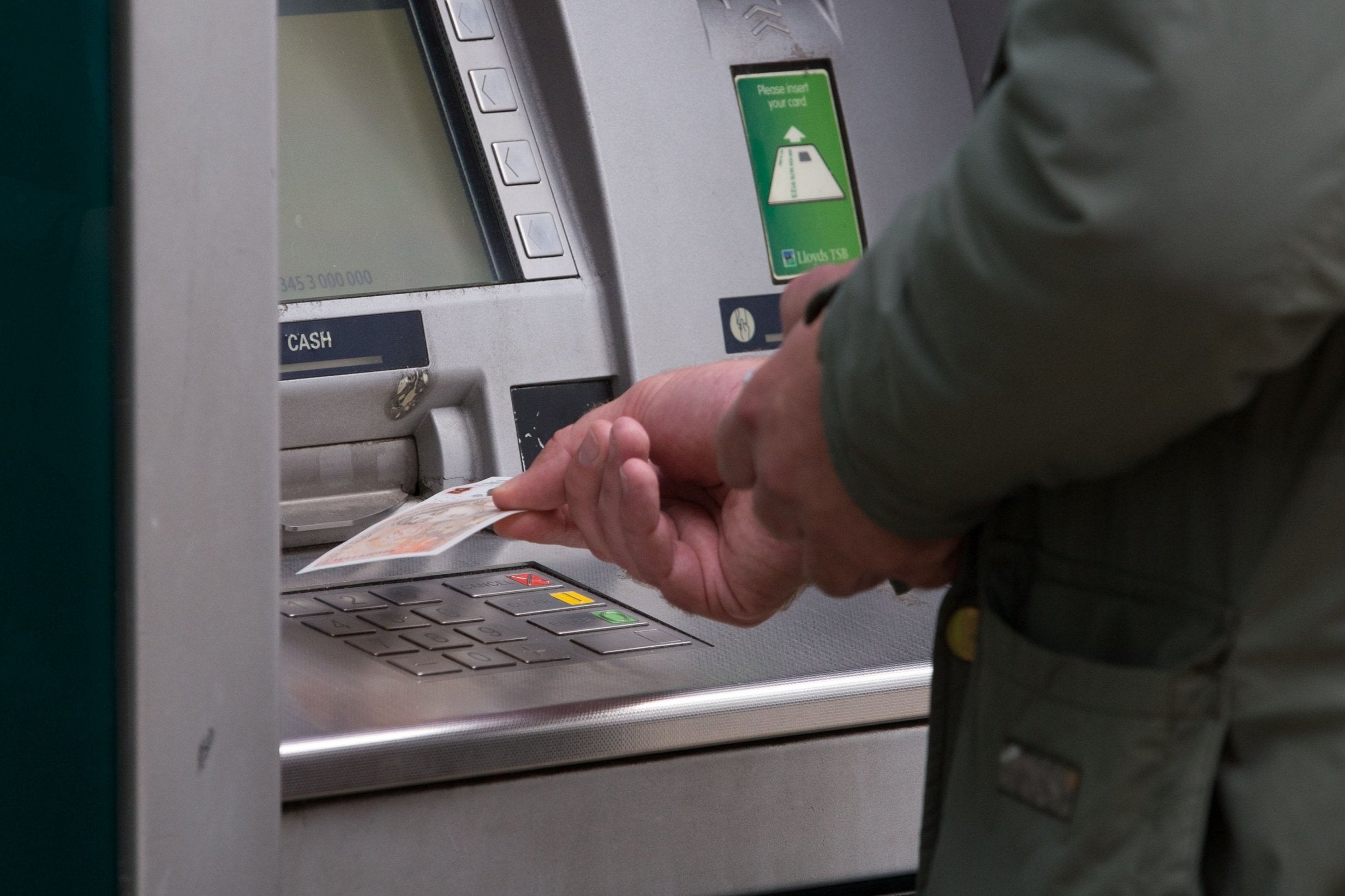Free-to-use cashpoints closing at record rate, leaving communities without access to money
250 free cash machines disappearing every month, research finds

Your support helps us to tell the story
From reproductive rights to climate change to Big Tech, The Independent is on the ground when the story is developing. Whether it's investigating the financials of Elon Musk's pro-Trump PAC or producing our latest documentary, 'The A Word', which shines a light on the American women fighting for reproductive rights, we know how important it is to parse out the facts from the messaging.
At such a critical moment in US history, we need reporters on the ground. Your donation allows us to keep sending journalists to speak to both sides of the story.
The Independent is trusted by Americans across the entire political spectrum. And unlike many other quality news outlets, we choose not to lock Americans out of our reporting and analysis with paywalls. We believe quality journalism should be available to everyone, paid for by those who can afford it.
Your support makes all the difference.Free-to-use cash machines are closing at a record rate, leaving communities without access to cash, the network operator Link has revealed.
Between the end of January and the start of July 2018, the number of free-to-use ATMs fell from 54,500 to 53,200 as operators close down unprofitable machines, Link said.
In response, the Payment Systems Regulator (PSR) is calling for more protection for free cash machines in remote rural areas.
Hannah Nixon, the PSR’s managing director, said: “The requirements we intend to place on Link will help ensure that Link achieves their commitment to protecting the geographic spread of free-to-use ATMs across the UK.”
PSR had earmarked 2,365 machines that it wanted kept open because they are more than half a mile from the nearest alternative free ATM. However, 76 of those have closed in just six months, along with 1,200 others.
The closures come after banks reduced the fees they would pay operators for each transaction, making some machines no longer economic to run.
Operators have also been hurt by the fact people are using cash for a smaller proportion of transactions and instead favouring other payment methods such as contactless cards.
The number of cash machine withdrawals peaked at 2.9 billion in 2012 and has since fallen to roughly 1.8 billion, but an estimated two million people still rely on cash for their day-to-day spending.
Nicky Morgan, chair of the Treasury Committee, said that the closures were “worrying” and warned that regulator’s actions may be too little too late.
“Today’s figures show that, even before the interchange fee changes took effect, one protected ATM closed every other day,” she said.
“The PSR is rightly concerned by the closures, but I fear its regulatory intervention may be too little, too late. It must ensure that Link is held to its commitment to maintain the broad geographic spread of free-to-use ATMs.
Cash machine operators and Link have a duty to act to ensure consumers don’t lose out, Ms Morgan added.
David Clarke, head of policy at Positive Money, said the rate of closures was “deeply concerning”.
“These closures risk leaving whole communities without access to cash, harming the over two million people who are wholly reliant on cash for their day-to-day shopping.
“Banks have pressured Link to reduce the fees they pay towards the cash network, and the result has been to make hundreds of machines unprofitable.
“The PSR must urgently step in to prevent any further cuts to the interchange fee, and ensure that a widespread network of free machines is preserved.”
Join our commenting forum
Join thought-provoking conversations, follow other Independent readers and see their replies
Comments